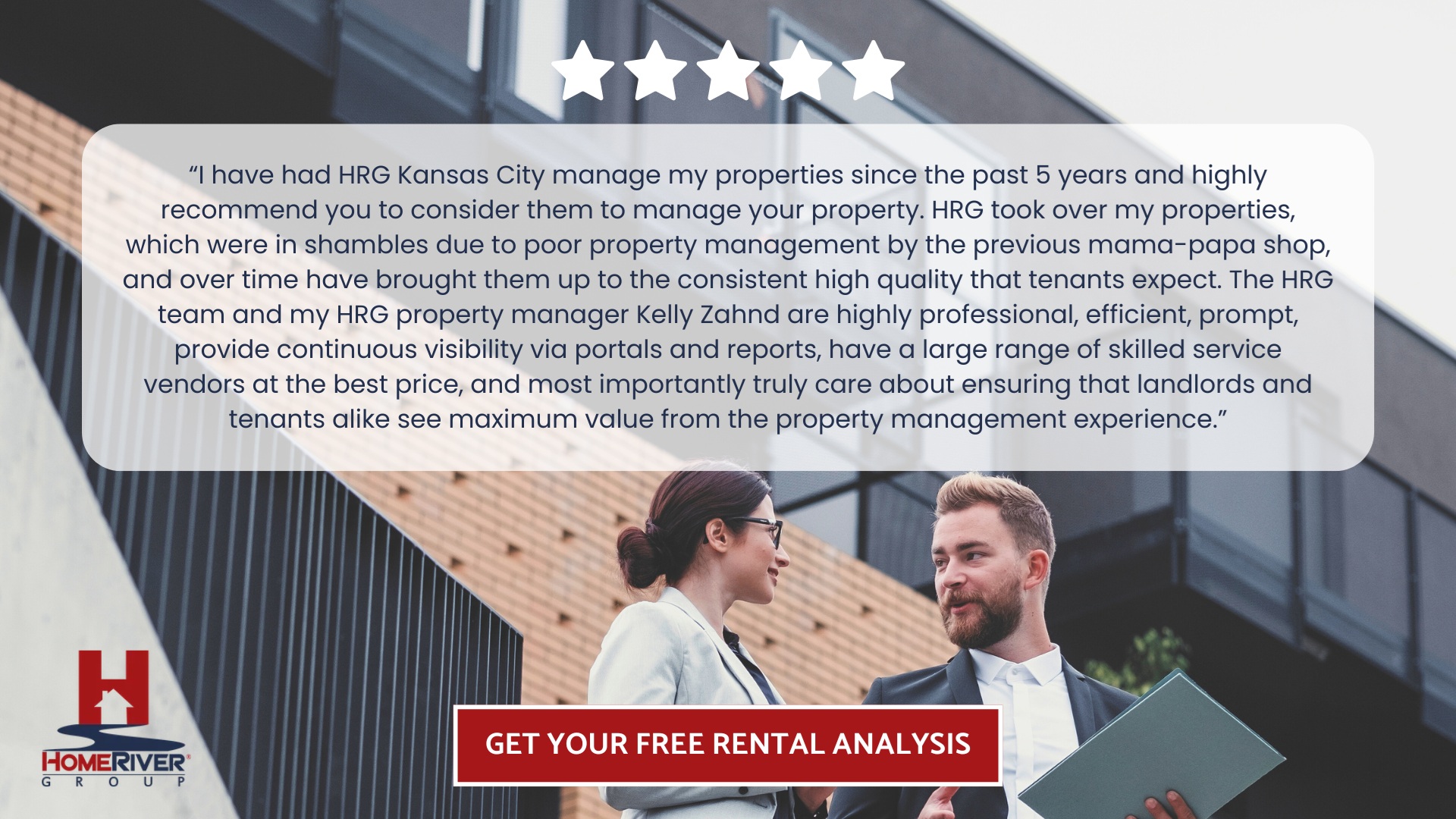
HomeRiver Group is one of the nation’s leading property management companies, trusted by thousands of investors across 60+ markets. With unmatched local expertise and a powerful national platform, we handle everything from leasing to maintenance with precision and care. Our mission is simple: protect your investment, maximize your returns, and make property ownership effortless every step of the way.
Navigating the complexities of tax season can feel like trying to solve a puzzle with missing pieces, especially regarding rental property deductions. Whether you're a seasoned landlord or a first-time rental property owner, our detailed guide will help you understand every possible deduction, from insurance to maintenance costs.
This article will explore the full range of tax deductions available to rental property owners, including how insuring a rental property fits into your overall tax strategy and boosts your financial returns.
Mortgage Interest Deduction
The mortgage interest deduction is one of the most significant deductions you can claim as a rental property owner. If you've taken out a loan to purchase or improve your rental property, the interest you pay can be fully deducted from your taxable income.
What Qualifies For The Deduction
This deduction applies to first and second mortgages and home equity loans, provided the borrowed funds are used specifically for the rental property. The property must not be your primary residence but must qualify as a rental. If you're buying your first rental property, understanding how this deduction works can help you forecast your potential tax benefits more accurately.
How To Claim The Deduction
To qualify, you’ll need to itemize your deductions on your tax return and maintain thorough documentation. Lenders usually issue Form 1098 annually, which details the mortgage interest paid and can be used when filing your taxes.
Why Professional Guidance Matters
While this deduction can significantly lower your taxable income, staying updated on tax law changes is essential. Consulting with a tax professional ensures you maximize your deductions and comply with current IRS regulations.
Property Taxes
When it comes to insuring a rental property, understanding the nuances of property taxes can be just as crucial as knowing the details of your insurance policy. Property taxes, which local governments levy, can often be deducted from your taxable income, providing significant financial relief during tax season.
Tracking Property Tax Payments For Deductions
To ensure you're not missing out on these potential deductions, keeping meticulous records of your property tax payments throughout the year is important. This includes any special assessments or additional charges that might be included in your tax bill. By staying organized and keeping all relevant documentation, you can streamline the process of claiming these deductions and maximize your tax benefits.
Geographic Variability In Property Tax Rates
It's worth noting that property tax rates can vary widely depending on your location. This means that the amount you can deduct may differ significantly from one rental property to another, especially if you own properties in multiple jurisdictions. Staying informed about the specific tax rates and regulations in each area where you have a rental property is essential for accurate tax reporting and optimization.
Exploring Local Tax Relief Programs
In addition to the standard property tax deductions, some areas offer special tax relief programs for rental property owners. These programs can further reduce your tax liability, making it even more important to stay up-to-date with local tax laws and opportunities for savings. By taking advantage of these programs, you can enhance the financial performance of your rental investments.
Repairs And Maintenance Costs
When managing a rental property, one of the most common expenses you'll encounter is the cost of repairs and maintenance. From fixing a leaky faucet to repainting the walls, these expenses can add up quickly. But the good news is that you can deduct these costs from your taxable income, which can help reduce your tax bill.
Keep Detailed Records For Every Expense
The key is to keep detailed records of all your repairs and maintenance expenses throughout the year. This includes receipts, invoices, and other documentation showing what work was done and how much it cost. You can accurately report these expenses on your tax return and maximize your deductions by keeping meticulous records.
Understanding Deductible vs. Non-Deductible Costs
It's important to note that not all expenses related to your rental property are deductible. For example, improvements that increase the value of your property, such as adding a new room or renovating the kitchen, are not considered repairs and maintenance. These expenses must be depreciated over time rather than deducted in the year they were incurred.
Examples Of Qualifying Repairs And Maintenance
On the other hand, repairs and maintenance expenses keep your property in good working order and maintain its current condition. This can include fixing a broken window, replacing a worn-out carpet, or servicing the HVAC system. As long as these expenses are ordinary and necessary for the operation of your rental property, you can deduct them in full on your tax return.
Stay Organized To Maximize Your Deductions
By staying on top of your repairs and maintenance costs and keeping detailed records, you can ensure you're taking advantage of all the deductions available as a rental property owner. This can help you save money on taxes and keep your rental business running smoothly. These practices are also essential when learning how to maximize your rental income, as well-maintained properties attract reliable tenants and support long-term profitability.
Legal And Professional Fees
When managing a rental property, the costs can pile up faster than a stack of unpaid bills. But don't worry, because some of these expenses can be deducted come tax season. Let's discuss the legal and professional fees aspect, where the only thing more confusing than the jargon is the paperwork.
Deducting Legal Fees Related To Rental Properties
First up, legal fees. If you've ever had to evict a tenant or deal with a pesky lawsuit, you know that lawyers aren't cheap. But the good news is that these costs can be written off if they directly relate to your rental property. So, keep those receipts handy, whether you're battling it out in court or just trying to get your tenant to pay their rent.
What Counts As Professional Fees?
Next, we have professional fees. This category is a bit of a catch-all, but it can include everything from accountants to property managers. If you're paying someone to help you with the day-to-day operations of your rental property, you can deduct those costs. Just keep detailed records because the IRS loves a good audit. This is especially important if you're learning how to rent out your house with property management, as many of these services come with deductible fees.
Insurance Costs That May Be Deductible
But wait, there's more! If you're insuring your rental property, you might also be able to deduct the premiums. From liability insurance to landlord insurance, these costs can add up quickly. But as long as the policy is in place to protect your rental property, you can likely write off the expense.
Organized Records Make For Smoother Deductions
So, there you have it. Legal and professional fees might not be the most exciting topic, but they can save you a pretty penny come tax season. Remember to keep those receipts organized because nobody wants to spend their weekend digging through a pile of paperwork.
Record-Keeping Best Practices For Deductions
When maximizing your rental property deductions, meticulous record-keeping is a necessity.
Here's how you can stay on top of your documentation game:
Organize Early and Often: Don't wait until tax season to organize your receipts and invoices. Create a system from day one, whether a physical folder or a digital app, to keep track of all your expenses. This includes everything from repairs and maintenance to utilities and insurance.
Detail Is Your Friend: For each expense, note the date, amount, purpose, and other relevant details. If you're claiming a deduction for a new roof, keep the invoice showing the cost, the date of installation, and the contractor's name and address. The more detailed your records, the smoother your tax filing will be.
Stay Updated On Tax Laws: Tax laws can change yearly; what was deductible last year might not be this year. Make it a habit to check for updates or consult with a tax professional to ensure you're not missing out on any new deductions or falling afoul of new regulations.
Digital Backups: In this digital age, losing physical documents can be a nightmare. Scan or photograph your receipts and store them securely online. This protects you from losing important documents and makes it easier to access them when needed.
Separate Personal and Business Expenses: If you occasionally use your rental property for personal use, keep those expenses separate. Only expenses related to the rental use of the property are deductible. Mixing personal and business expenses can lead to confusion and potential audit triggers.
By following these best practices, you'll be well-prepared to claim every deduction you're entitled to, making tax season a breeze rather than a burden.
Final Thoughts
Navigating your rental property tax deductions can feel like solving a complex puzzle. But with the right checklist, you can maximize your returns and keep your financial house in order. At HomeRiver Group, we understand the intricacies of property management and the importance of staying on top of your tax obligations. Our dedicated team leverages local expertise and a national platform to provide you with unparalleled service, ensuring your property remains a profitable investment.
From mortgage interest to property management fees, every deduction counts. You can confidently tackle tax season and keep more money in your pocket by staying organized and informed. Using an ROI calculator can also help you estimate potential returns and measure the impact of your deductions more clearly.
Trust HomeRiver Group to be your partner in property management.
Read also:
What Is Considered Normal Wear And Tear In A Rental? A Landlord’s Guide
How Much Should I Rent My House For? Tips For Setting The Right Price
Frequently Asked Questions About Insuring A Rental Property
What qualifies as rental property deductions?
Rental property deductions include expenses related to operating and maintaining the rental, such as mortgage interest, property taxes, repairs, depreciation, insurance, and management fees. These deductions reduce your taxable rental income and must be properly documented.
What's the difference between repairs and improvements for tax deductions?
Repairs restore a property to its original condition and are deductible in the year incurred. Improvements increase value or extend the property's life and must be depreciated over several years. Understanding the difference helps you apply the correct tax treatment.
Is it possible to deduct rental property repairs?
Yes, repairs like fixing leaks, patching walls, or replacing broken fixtures are fully deductible in the year they’re paid. These are considered necessary for keeping the property livable and treated as current expenses.
How does depreciation work for rental properties?
Depreciation lets you recover the property's cost over its useful life, typically 27.5 years for residential rentals. You deduct a portion annually, excluding land value. This reduces taxable income even if you haven’t spent additional cash that year.
Are property taxes fully deductible on rental property?
Yes, property taxes are deductible as part of your operating expenses. This includes annual local or state property tax bills, which can be claimed on your tax return to reduce your overall rental income and taxable earnings.
Can I deduct insurance premiums for my rental property?
Yes, premiums for rental property insurance—including landlord, liability, and fire coverage—are deductible operating expenses. If the policy protects the rental property and is tied to its ownership, these costs can be written off annually.
Are utilities paid for a rental deductible?
Those costs are deductible if the landlord pays utilities such as electricity, water, or gas for a rental property. This includes cases where leases require landlords to cover certain utilities or when vacant properties still incur costs.
How do I claim travel expenses related to my rental property?
Travel related to rental management—like inspections or repairs—is deductible. Eligible expenses include mileage, lodging, and meals for overnight stays. You must maintain detailed records, including dates, purpose, and receipts, to properly support the deduction on your tax return.










